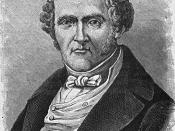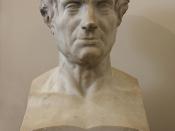Armed with starry-eyed, pacifist idealism and a thirst for finding the truth, the Transcendentalists of the Era of Reform sought to reject the token values of society and to fulfill their potentials as reasonable, worthy individuals. They were an idealistic and refreshingly egalitarian group of intellectuals in a world of slavery and budding industrialism, embodying an odd mixture of praise for the individual and desire to unite. The concept of the individual was the supreme ideology as far as the Transcendentalists were concerned; they thought that in order to rise above the base and unenlightened society, individuals should seek their own truths, resisting the urge to conform to common perspectives. The faith in the individual even spread to the formation of new ideas about religion, proclaiming the divinity of the individual. The reform of religion, however, was secondary to the reform of society; the Transcendentalist drive to reform society, to transcend it, to perfect it, sparked a series of "utopias", communes designed to embody the goodness, equality, and freedom the Transcendentalists so admired.
These individualists looked to communal living as a means to repudiate the class-conscious and unequal society of the mid-1800s. While they believed all the answers to be contained within the individual, the Transcendentalists saw that reforming all of society would require a group effort; however, their group effort, as shown in the Owenist New Harmony and the Fourier phalanxes, failed. The contradicting fundamental beliefs that formed the Transcendentalist communes during the mid-1800s were also the primary and unnecessary cause of their downfall.
American Transcendentalist utopias generally fell into one of two categories: either Owenism, a movement started by Robert Owen, who created the first non-religious socialist community, or Fourierism, a movement which also based communal living on non-religious principles, created by Charles Fourier. The goals of each...


